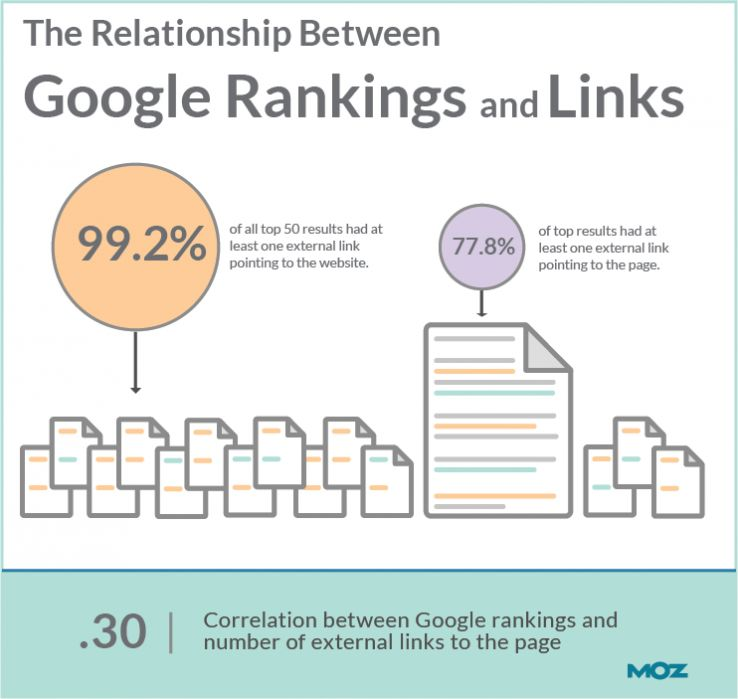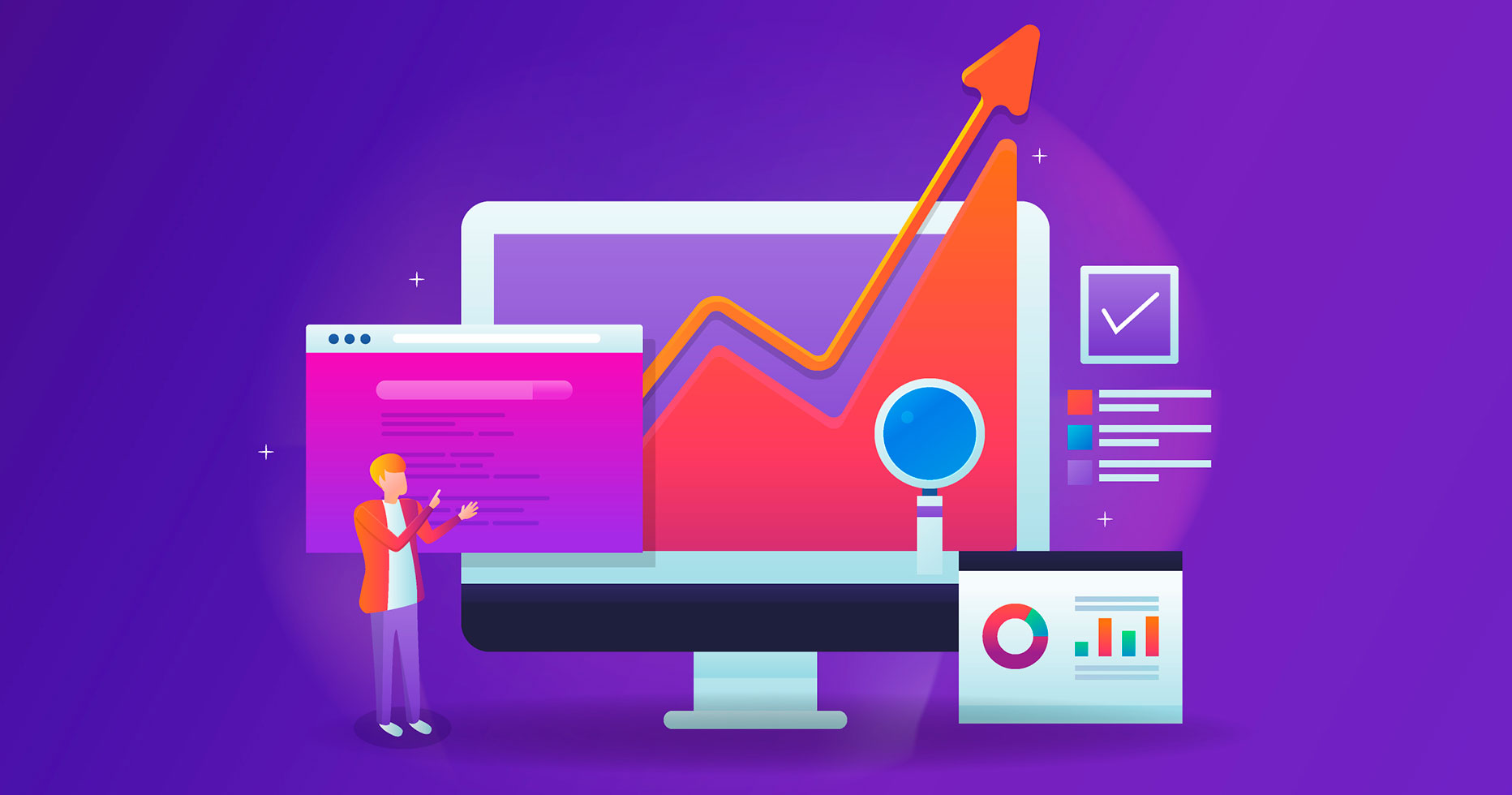What Is Off-Page Optimization
Off-page SEO allows you to optimize your website with the objective of improving its ranking and credibility. While on-page SEO includes content, structure, and speed optimization, off-page SEO focuses on the outside of your webpage.
Off-page SEO implies connecting your website to the rest of the world. This includes link building, increasing brand awareness and recognition, reaching out to other bloggers, handling brand mentions, and so on.
Best Off-Page SEO Techniques
We have prepared a list of off-page SEO techniques for your website. Most of these tips are focused on increasing the number of quality links with keywords to your website.
Quality Links
Links are one of the most important aspects of off-page SEO techniques in 2021. Search engines assess the relevance and value of your website based on its backlink profile. Sites with a large number of high-value backlinks will be ranked higher than similar sites with fewer or lower quality backlinks.

Some links are more valuable than the others. Key factors to determining their quality are as follows:
- Resource reputation. The more reputable the source of the link, the higher quality this link will be. Links from domains such as .gov or .edu are considered the most valuable and positively affect your ranking. On the flipside, backlinks from websites with a negative reputation may downgrade your ranking.
- Backlink placement. Putting a backlink in the main body of your article is considered much better for SEO then placing the link in the header or sidebar.
- Do-Follow/No-Follow. Every link is either a “do-follow” or “no-follow” link. While do-follow links increase your PageRank, no-follow links are not counted by Google, but still generate traffic for your website. Links from blog comments, forums, and huge platforms like Wikipedia are no-follow by default.
Broken Link Building
Broken link building is a technique for creating backlinks to your website by replacing links that no longer work. Research relevant websites in your niche, find broken links, reach out to the site owners, and bring their attention to the broken links. The trick is to offer a backlink to your website (provided that you have the relevant content) in exchange for fixing their SEO.
There are several tips on how to find broken links:
- Check your competitors’ websites using Ahrefs or a similar service to find non-existing pages. Then, click on “backlinks” to find out who is still linking to the pages that no longer exist.
- Search for broken links on Wikipedia by typing into Google: site:wikipedia.org “your keyword” intext: ”dead link”. Moreover, Wikipedia even has a special article with broken links that you should check as well.
- Quite frequently, you may find broken links in the list of information sources. You may search for such webpages by typing into Google: “your keyword” + “useful / helpful resources”. Then use the Check My Links plugin to find any broken links.
When you find a broken link, check with Ahrefs or a similar service to find out who else is linking to the non-existing page. Services like Archive.org allow you to check the content that was previously on the page. If you don’t have an alternative on your website, you can create a relevant page, reach out to the editors of the website, and offer them to link to your website instead.
Guest Posting
Guest posting is one of off-page SEO activities that you should try. To find guest posting opportunities, search on Google or social media for: your keyword + “guest post”.
While creating content, keep in mind that your post must be valuable to readers and add a link to your website in an organic manner. For example, suggest some tips or life hacks, but avoid spam. The more useful your article, the more traffic it will generate.
Be careful when choosing the platform to publish your guest post. Take your time to find quality websites and blogs. Backlinks from dubious platforms do more harm than good.
Social Media
Social media is a great way to increase your brand recognition and build more links. According to Larry Kim, social engagement (such as likes and shares) on posts with links to your website positively affect your page ranking. Here are some off-page optimization techniques to leverage the power of social media:
- Network. Find influencers and experts in your niche and connect to them. You can start by linking to them on your website. Come up with ideas for a joint project and share them with other bloggers. Not only does it provide you with additional links, it also helps you establish trust and reach a wider audience.
- Run a giveaway. Everyone likes free stuff. Offer a product or financial incentive in exchange for liking, commenting, or sharing your post. This will generate activity on your website and create new backlinks.
- Contests. There are many ways to run a contest. For example, ask readers to write a blog post, share their experience, photos, ideas, and so on. In return, they’ll get a prize, such as a financial reward, or be featured on your front page.
- Encourage reviews. You can start by surfing the Internet and replying to existing reviews, both positive and negative (which is even more important). Then, try to encourage other users to leave a review of your product or service. Offer a discount or free trial in exchange.
Reviews
As we’ve just mentioned, reviews are an important aspect of off-page optimization. The easiest way to gain positive reviews is to directly ask your customers or readers to leave positive feedback if they had a good experience.
You can also create a rating section on your website or use social media platforms, such as Facebook or Google Maps.
Forums and Q&A Websites
Forums and Q&A websites are a good way to earn backlinks, despite providing mostly “no-follow” links. Choose a couple of Q&A sites and forums that are highly ranked (check on Alexa.com), then answer questions and engage in discussions relevant to your niche.
The safest way to avoid being banned for promotion is to link to your website in your bio and not in your comments. However, you still can mention your website without a hyperlink when commenting. Of course, this all depends on the rules of each forum. For example, Reddit strictly prohibits advertising, so any link would be undesirable.
Brand Mentions
Monitoring brand mentions allows you to maintain a positive brand image and gives you yet another chance to acquire more backlinks.
While this may sound like a lot of work, you fortunately don’t have to manually surf the Internet 24/7 to find who mentioned you. Automate this process using Screaming Frog SEO Spider, Contentbird, or another similar service. This will help you receive important feedback and respond to it right away in order to build trust with potential and existing customers.
Secure Connection
Another off-page optimization technique is to ensure there is a secure connection on your website, especially if you accept payments or ask visitors for credentials. Thus, you’ll naturally build trust with your audience.
A SSL certificate allows you to secure user interactions with your website. This tool is mostly used for asymmetric cryptography. When visitors to your website find out that all their interaction is protected, they’ll be more likely to sign up, fill in their personal information, subscribe to your newsletter, and make a purchase.
Network
By reaching out to other bloggers, you are building a network, establishing authority, reaching a wider audience, and more. You can start by commenting on relevant blogs in your niche, as this is a great way to start a conversation. Also, you can mention influencers on your own website or offer them to run a joint project, for example:
- Co-host a webinar
- Interview each other
- Write guest posts
- Run a joint giveaway
Shareables
Try to convert your content into beautiful, useful shareables, such as PDFs, infographics, videos, presentations, Excel files, and more.
First, this is a great way to gather more email addresses from readers. Second, it allows you to increase brand awareness, as people tend to share valuable materials. Remember to mention your brand and a backlink in all shareable files that you post.
You can also publish this content on platforms open to general use, such as SlideShare. If you are lucky, your content may become viral, which will generate a lot of backlinks.
Interviews
When looking into effective off-page SEO techniques, don’t miss the chance to earn backlinks through interviews via podcasts, videos, blog posts, etc.
To make the most of your interview, research the activity of your interviewee. Prepare questions that will be interesting for your audience and help the influencer open up and show their strengths and expertise. Think through how to transition between questions in a creative way. Also, consider running a giveaway or contest at the end of the interview.
Off-Page SEO Tools
You likely already checked your website’s ranking on Google. But there are many more useful tools that will help you evaluate and improve your website positioning.
- Check My Links is a free Chrome extension that will save you a lot of time. It helps check all the links on a page and highlights valid links in green and broken links in red.
- Ahrefs is an extremely powerful tool for website analytics. It allows you to check on various off-page SEO factors, such as rankings, broken links, and more. You can start a $7 free trial or buy a monthly subscription.
- Web Archive helps check non-existing content that was previously published on your webpage. You can use the web version or install the browser extension.
How to Increase Your Off-Page SEO
Off-page optimization includes a wide array of methods to improve your backlink profile and PageRank. By following our list of off-page SEO techniques, you will rank higher on search engines and, more importantly, build trust within the community, receive feedback to improve your business, connect with other influencers, and more. Don’t forget to also work on your on-page SEO, as both strategies go hand in hand.




